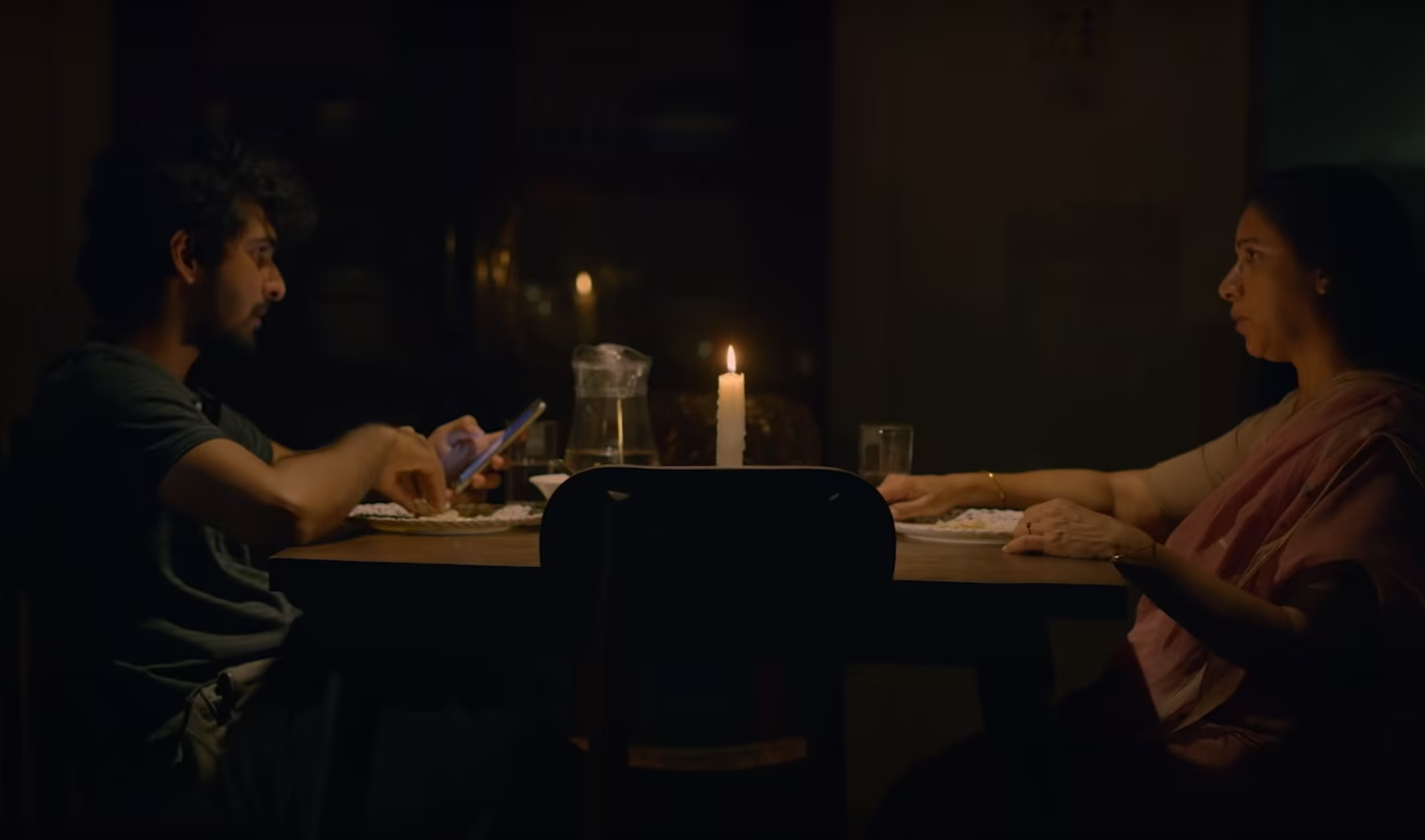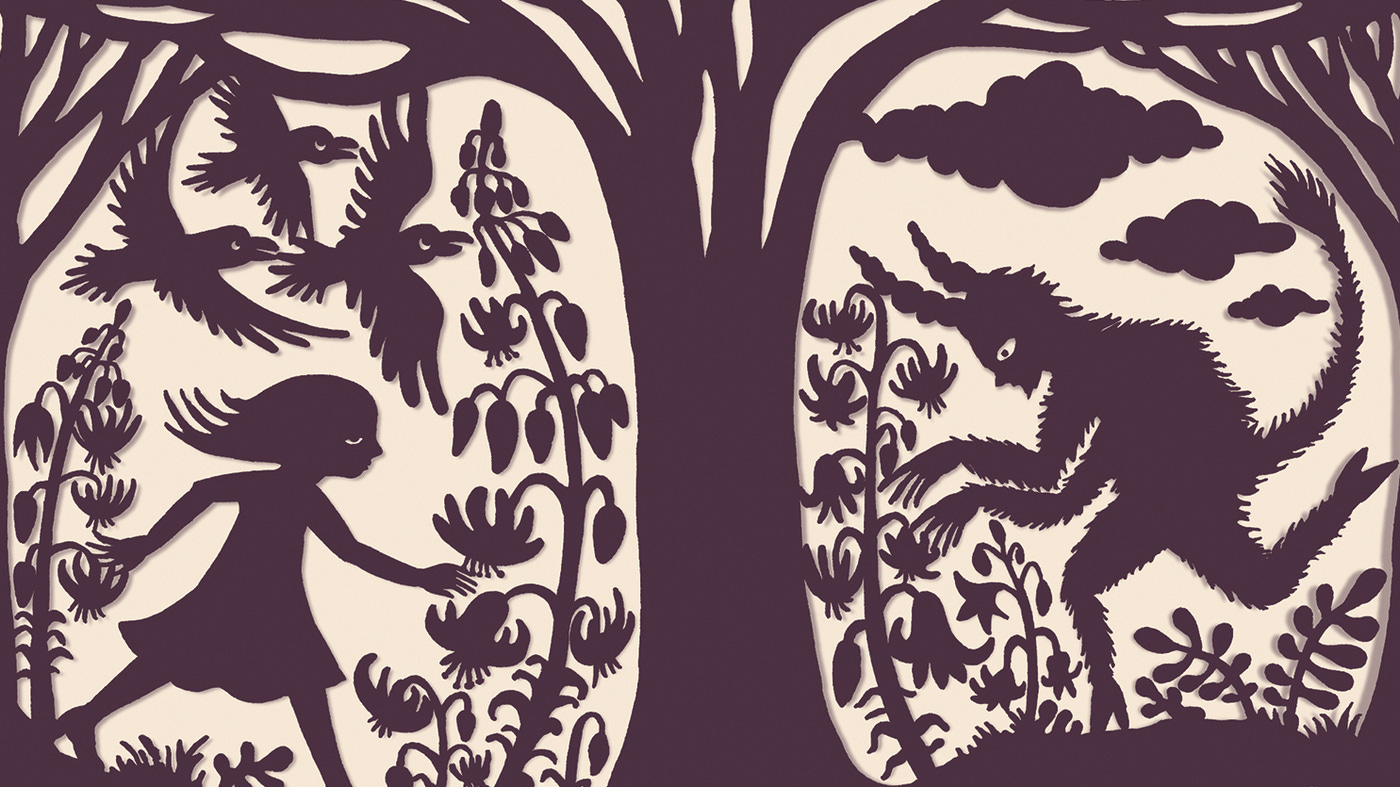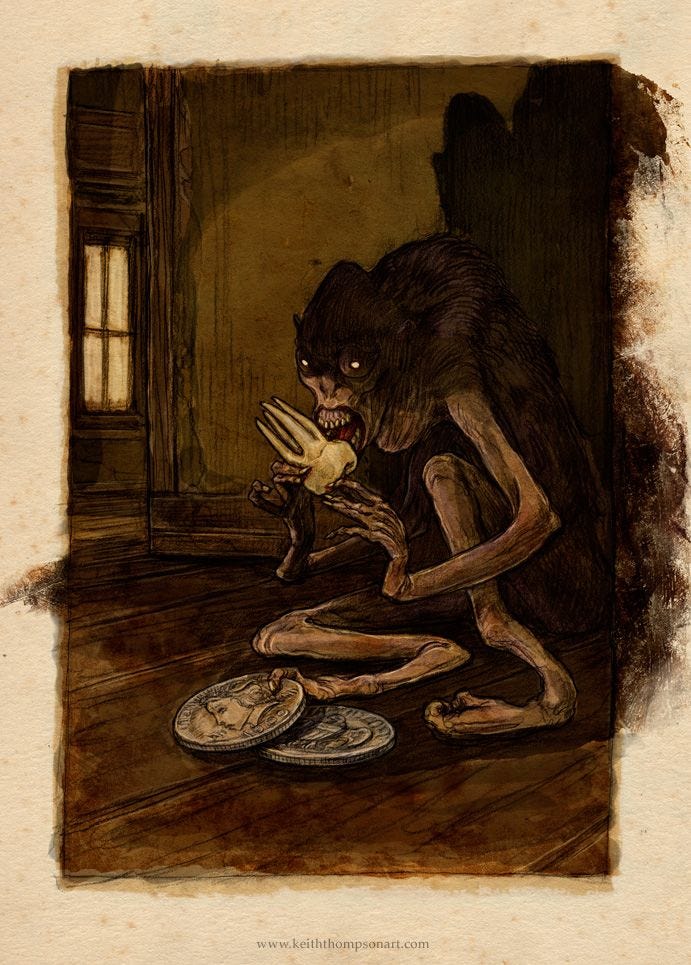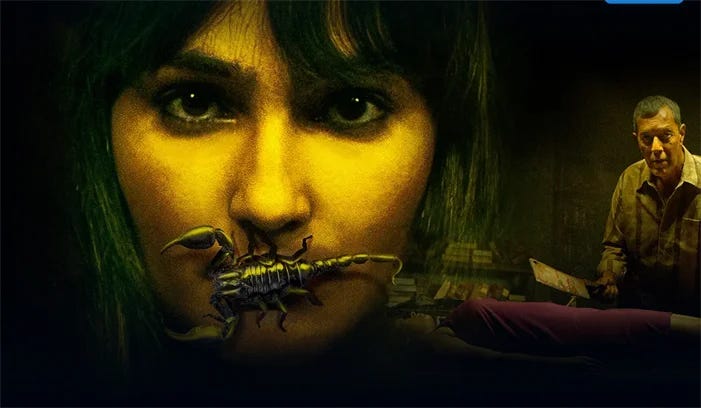"The body is a site where we weave what we learn. A visceral, cellular memory. A different kind of intelligence, a body intelligence."
~Lidia Yuknavitch, Woven
There isn’t much that the body forgets—especially a body informed by trauma.
I grew up in a loving household that hid its horrors beneath the surface. All children, I imagine, are afraid of the supernatural. Growing up in a small house surrounded by more people than the house had rooms for, I should have always felt safe.
A grand tour of that house would reveal its shifting landscape: one living room, with the sofa, the television, and a diwaan that my grandfather slept on. I then there was a dining room that also doubled as a storage space where we sometimes ate dinner. Then there was the kitchen, and two other rooms, one where I slept next to my grandmother. And one shared by my parents and my younger brother.
This house's geography of occupation changed multiple times over the decades. With each shift, the epicentre of my tragedies seemed to move. Perhaps because of this dislocation, or because I am now a somewhat rational grown woman, I've lost the specific fears the house once held, fears that seemed uniquely mine.
The idea of a house has long been central to horror tropes. A house is, after all, an internal space where what lurks inside troubles its inhabitants. It guards secrets outsiders are not privy to. What appears beautiful and warm on the outside can harbour horror and fear within its corners, conceal dead bodies within its walls, and be home to tormented spirits of the past, further afflicting the already suffering.
A memory of horror
A few years ago, I watched Rahul Sadasivan’s Bhoothakaalam. Set within a claustrophobic, haunted household, the film follows a grieving mother (played brilliantly by Revathi) and her unemployed son (Shane Nigam), both grappling with mental illness and loss.
In Bhoothakaalam, the house is not merely a setting—it is a character in itself, embodying the emotional weight of grief, psychological distress, and intergenerational trauma. The film rarely steps outside its dim, ageing interiors, reinforcing a sense of suffocation and entrapment. This house is not a site of safety, but a haunted architecture of the mind—a liminal space where personal and inherited wounds quietly fester. The horror lies not in apparitions, but in the way space reflects and reinforces the characters’ inner disintegration. A domestic space, once associated with care and belonging, becomes uncanny—its corridors echo with silence, its corners thicken with dread. The house becomes a container for unresolved pain.
It had been a long time since a horror film affected me this deeply. That night, I couldn’t sleep well. But it wasn’t because I feared a ghost lurking in my room—that fear had been laid to rest sometime in my late twenties, or if I’m being honest, my early thirties. What unsettled me was the reminder of how deeply spaces can hold power over us.
I watched the film during the pandemic, while sleeping in a room that once belonged to my grandmother—a woman with whom I had a deeply fraught relationship. Many times in that room, something as ordinary as drinking water felt uncanny; the water would suddenly taste like steel. I know my mind was playing tricks on me, and yet I also know that room is steeped in personal trauma. My grandmother, for those who don’t know, was the only witness to my child sexual abuse. She did nothing. For most of my life, I couldn’t get along with her, without fully understanding why. And by the time I did, she was long gone.
I no longer feel pain or resentment toward her. That trauma—and that betrayal—are things I’ve moved past. But the room sometimes still plays tricks on me. I think that’s why Bhoothakaalam disturbed me so much. The film’s house held so much pain, so much buried violence, such deep depression—it could never be anyone’s friend. The entire film was shrouded in a fog of despair, and it pulled you into its depths. It wasn’t the ghosts that terrified me, but the house’s relentless ability to inflict psychic pain on its inhabitants.
Safe spaces can turn against you. I learned that far too early in life—and stopped trusting anything or anyone but myself.
Grimm Brothers and Grimmer Grandmother
You probably know that the original stories collected by the Brothers Grimm don’t have the fairytale endings that Disney has fed to us. They are often marred by a lot of violence and bloodshed. For example, in "Cinderella," the stepsisters brutally cut off parts of their own feet to fit the slipper, and later have their eyes pecked out by doves. In "The Juniper Tree," a wicked stepmother decapitates her stepson, cooks him into a stew, and serves him to his unsuspecting father.
My aaji was a great storyteller. While she never narrated any of these fairytales, she told me stories of Vikram-Betal and several others from Chanda Mama and Panchatantra. I still remember most of the stories she narrated. I had favourites that I would beg her to narrate.
Much like the fairytales that were supposedly narrated to teach children valuable moral lessons. Little Red Riding Hood’s story warned children against trusting strangers who could be the big bad wolf, a known evil. My grandmother’s stories, too, were a warning. But a warning against the unknown evil.
The Story of Chakwa
This is a story I grew up hearing. Raju was my father’s cousin who was abducted, allegedly, by an evil wind. The evil wind was attracted to strong smells. My grandmother didn’t want me to be taken by the evil wind, so she didn’t want me to use scented shampoo, soap, or perfumes. For the non-believers in the evil sources that lurk inside our world, this could be interpreted as her way of trying to keep me safe from garnering any attention.
Perhaps, when she couldn’t save me from the next-door ghouls – a horror she witnessed but chose not to act upon – she at least tried to save me from those coming from the nether world. The story of Chakwa, or evil wind, was the first time I felt terror manifest in my body. It wasn’t just a story; it was a lived example. And my grandmother, an accomplished storyteller, narrated it with such conviction you couldn’t stop yourself from believing it.
The horrors that hid behind my grandmother’s mind were many. That she served each of those to me on a platter ensured horror became a dominant theme of my life.
I remember this one time I woke up from a nightmare. I saw something, someone, crouched on the top of the mosquito net. I looked towards my grandmother, deep in her sleep, her soft snores reverberating through the space between us. A space that felt immense, unbreachable, in that moment. When I looked at her, I also glanced outside the window. It was pitch dark. The faint light of the moon, dancing on the window. And I saw the face of a man looking at me.
I sat up, got out of the mosquito net, and went into my parents’ room to tell them I was afraid and I had to sleep with them. There was someone in the other room. My mother woke up as she felt my touch, woke my father up to tell him that I was running what seemed like a high fever. It was later determined that I had a viral fever, but the beginning of this fever was fear.
In those days, I was preoccupied with the fear of having caught the HIV infection, which had no cure. And I was also afraid of dying at the hands of an evil spirit. Both things were easily possible. But there was only one thing I could share with my parents. And that was not the fear of AIDS.
The AIDS fear was rooted in a half-baked understanding of science and fully formed paranoia. In a government advertisement played before a movie I had watched in theatres with my parents, I learnt about AIDS and how it could happen to someone with multiple sexual partners. I was, at that point, being assaulted by five men.
My terror-prone, eight-year-old mind deduced the only logical conclusion that I had AIDS. When the viral fever refused to subside even after a week, the certainty grew. When the doctor informed my parents that the viral infection had affected my kidneys and made them sluggish, I knew that death was certain. I wanted to take my secret to my pyre, die of sluggish kidneys and swollen eyes as a result of it. Or, for a brief, terrifying moment, I considered the option of being dragged by Chakwa to a water source and being killed. At least it wouldn’t be a shameful death.
Little Birds of Deception
My grandmother lost her firstborn, a little girl, within the first few years of her birth. This girl was beautiful, healthy, with chubby cheeks and a curious mind. She died of unknown causes. She fell ill and then just couldn’t survive. The first time I found out about her, I remember that moment distinctly. I had found a photo of hers. I didn’t know who she was. When I asked Aaji, she didn’t say anything but began to cry. That scared me, and I withdrew. Later that day, I asked my mother, who told me about the girl in the photo. She was very cute, I said. Aai agreed.
For the first time in my 10-year-long life, I felt sorry for my grandmother. I decided I won’t be angry with her ever again. She had lost a cute baby. A Murphy baby.
That decision didn’t stick for too long. I had a lot of trauma to process. But it did make me talk to her and ask questions about the lost daughter. And Aaji, the storyteller, shared another story.
There is an evil bird called the Titvi. It doesn’t like healthy children. It flies away with their freshly washed clothes. It is attracted to the baby scent that sticks to the clothes despite being washed. As the Titvi flies higher and higher, the wet clothes begin to dry. When it is exhausted, the Titvi dumps the clothes wherever it stops its flight. With the drying clothes, the child also dries.
Dries, dries, dries, and vanishes.
Aaji was convinced her daughter died because of an evil bird—sent by someone who didn’t like that she had a daughter who was beautiful, healthy, with chubby cheeks and a curious mind. When she first fell ill and the doctor couldn’t figure out what was wrong, Aaji took her everywhere—church, temple, dargah, baba. The priest looked at the child and said he could see her end in her aura. She didn’t have long, he told Aaji. Blessed her while handing her a death sentence. And the child died.
Aaji never got over it. She carried a lifelong fear of anything supernatural. Passed it on to the one child who survived—my Baba. And then, to me.
This is why my mother was never allowed to dry clothes outside. Why I was never allowed to wear anything scented.
I grew up on these stories. They made my mind soft and ready for fear. It didn’t help that my mind was already harbouring violence. That my body was already carrying scars.
I’ve never had a regular relationship with illness. When I got jaundice, my bilirubin reading was just 0.045 points higher than normal, 1.345 mg/dL. Technically, not even jaundice. The doctor thought it was a lab error. But the fever kept climbing. I couldn’t eat, couldn’t keep anything down. Couldn’t walk, couldn’t talk, couldn’t function. They ran every test. Everything else came back normal. They repeated the jaundice test. This time: 1.346. “Not a technical error,” the doctor said. “Let’s treat it.”
It took three months for my body to recover. My body, which has always known how to hold onto horror. It knows where to hide things. Knows the places no one thinks to check.
A UTI once landed me in the hospital. Four months to recover. 105-degree fever. Two injections a day for a month. The meds gave me haemorrhoids. I cried for days. Lost ten kilos. Felt kind of good about that. But the horror wasn’t done. Then came rotavirus. A week in the hospital.
More of my body giving way.
Echoes and Reclamations
A few weeks ago, I was watching Khauf, a psychological horror TV series written by Smita Singh. The show, set within a claustrophobic hostel room, introduces a malevolent male spirit that is trapping three women. This echoed the insidious threats my grandmother's stories had warned against – not just a 'Titvi' bird, but the very real, gendered violence that had silently woven itself into my own early life. The series takes this even further, showing how a rape survivor's body in the hostel becomes a 'wounded vessel' for the spirit to trouble, occupy, torture, and brutalise. It was a visceral mirror to my own body's history of 'giving way,' of holding onto horror in places no one thought to check. The show articulated a terror I knew intimately: how a body, having weathered unspeakable acts, can become a battleground for unseen forces.
But Khauf offered something beyond the familiar cycle of fear and internal decay. It introduced a powerful counter-narrative: collective agency. While my own childhood horrors were faced in isolation, marked by a pervasive sense of betrayal and a decision to 'stop trusting anything or anyone but myself,' Khauf depicted a different kind of response. Here, four women, pushed to their limits, fight against malevolence. They face both the spirit and a witch doctor who preys on women for his own perverse survival.
Watching it was cathartic in many ways. Written by a woman, the show understood the way fear psychosis works. The everyday horrors of being a woman in a male-dominated world, where you can get masturbated on while riding the metro, and raped for not returning someone’s affections, are the more terrifying bits in the show. It was stomach-churning because the real-life horrors of my life ran parallel to the screen.
I never got to kill the evil spirits of my life. Two of them died of old age. But others are alive and kicking. In a conversation with my brother, for the first time in my life, I was able to articulate my rage. I told him that if I could, I would want to throw them off a 50-storey building. My brother offered his services, and we laughed about it. I am no longer scared of spirits. I don’t think I believe in them. I don’t spend my nights looking around in terror. But the damage done to my body remains as an ugly reminder.
At least, I can return to my home now without the familiar fears. At least, I have reclaimed my room from my grandmother and from the spirits she carried with her in rucksacks. At least my home is just that now, my home.











Thank you for writing this raw, vulnerable, very powerful piece. It will linger in my mind for a long while. More power to you and your words.
🥺🥺🥺